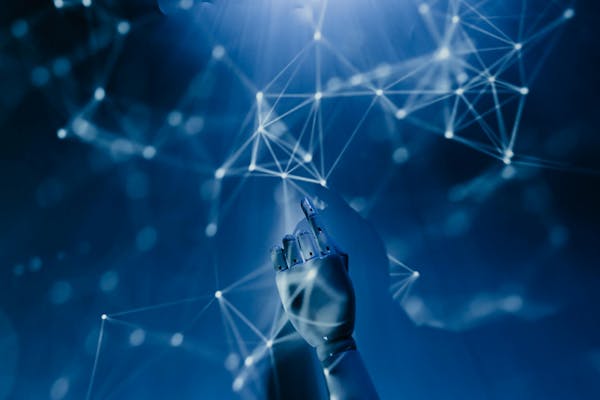
Humans versus machines has been the plotline of a huge number of science fiction stories over the years, and it’s a story that has evolved as machines have become more complex. What science fiction authors thought of 100 years ago pales in comparison to how far technology has actually progressed. In these stories, Artificial intelligence (AI) is one of the more prominent characters, particularly in the modern era – as hero or anti-hero, we aren’t quite sure yet.
Many companies are exploring using AI in their everyday processes to increase efficiency and reduce human error. However, using AI in a Human Resources (HR) capacity falls short of the, well, the human touch.
How can AI be used in HR?
There are many uses of AI across all aspects of a company, including several key uses when it comes to HR functions. Currently, there are hundreds of AI tools available to companies that can help them with the following:
- Recruitment Using AI to speed up the recruitment process can mean quicker reviews of applications and more streamlined interview pools. The majority of job posting platforms offer an AI component to pre-scan the resumes of applicants, getting rid of those that don’t match the criteria of interest. AI can also give hiring managers robust data about their applicant pool and then select out of that pool the candidates that are the strongest for that specific opportunity.
- Onboarding Onboarding is one of the most important aspects of the HR team’s work, as it sets the tone for new employees tenure at the company and their engagement in a positive work environment. AI can help with onboarding by taking them through onboarding materials and guiding them through training, as well as connect them to the right people across the organization.
- Performance reviews Another way that AI can get incorporated in HR work is through the facilitation of performance review, including by offering managers and employees performance data. AI can also automatically suggest growth opportunities to employees based on this data, such as a list of courses they can take to improve certain skills. Managers can use AI to write performance reports by entering a few key words and ideas, then receiving a generated review to share with their team members.
- Payroll If payroll falls under an HR function, then there are many AI tools available to support quick and correct paychecks to employees. Using an AI tool can help the HR team member spot irregularities or mistakes, and also provide employees with a chatbot to speak with to troubleshoot issues in their pay.
While all of the above uses of AI can be quite handy for HR team members and company employees alike, there are some major disadvantages that can raise integrity issues across the company.
Disadvantages of replacing a human HR department with AI
The disadvantages of replacing a human HR team with AI comes from the fact that AI has to learn how to function based on already-existing data, which in itself can be flawed. For example, recruitment AI tools often compare candidates against the “ideal candidate,” which might be a generic resume created by analyzing thousands of cases of biased recruitment processes. Through this biased learning, AI might have learned to value certain types of people, such as males or people with Western names. Because of this bias, many job seekers dislike the use of AI in recruitment, as they believe that it’s an unfair process that weeds out people who have non-traditional work experience or whose resumes don’t fit AI’s version of “ideal.”
Another disadvantage of AI is that no technology can replace a human when it comes to promoting the company mission or values, as well as creating a safe, positive working environment. AI isn’t able to understand the individuality of employees across the company and find ways to plan a company celebration or an office lunch for everyone based on that individuality.
Lastly, AI cannot help colleagues who are in conflict. AI won’t have the same conflict resolution strategies like a human HR team member would, and won’t have the empathy to ensure that everyone walks away feeling heard, valued, and respected.
In the end, “HR” literally has the word “human” in it, which makes it very difficult to replace with any full form of AI. AI can’t nurture an individualized work environment and keep employees performing at their best. That being said, however, using AI to automate a few HR functions is a great way to free up time and capacity for the HR team to work on the other things that require a human touch.



